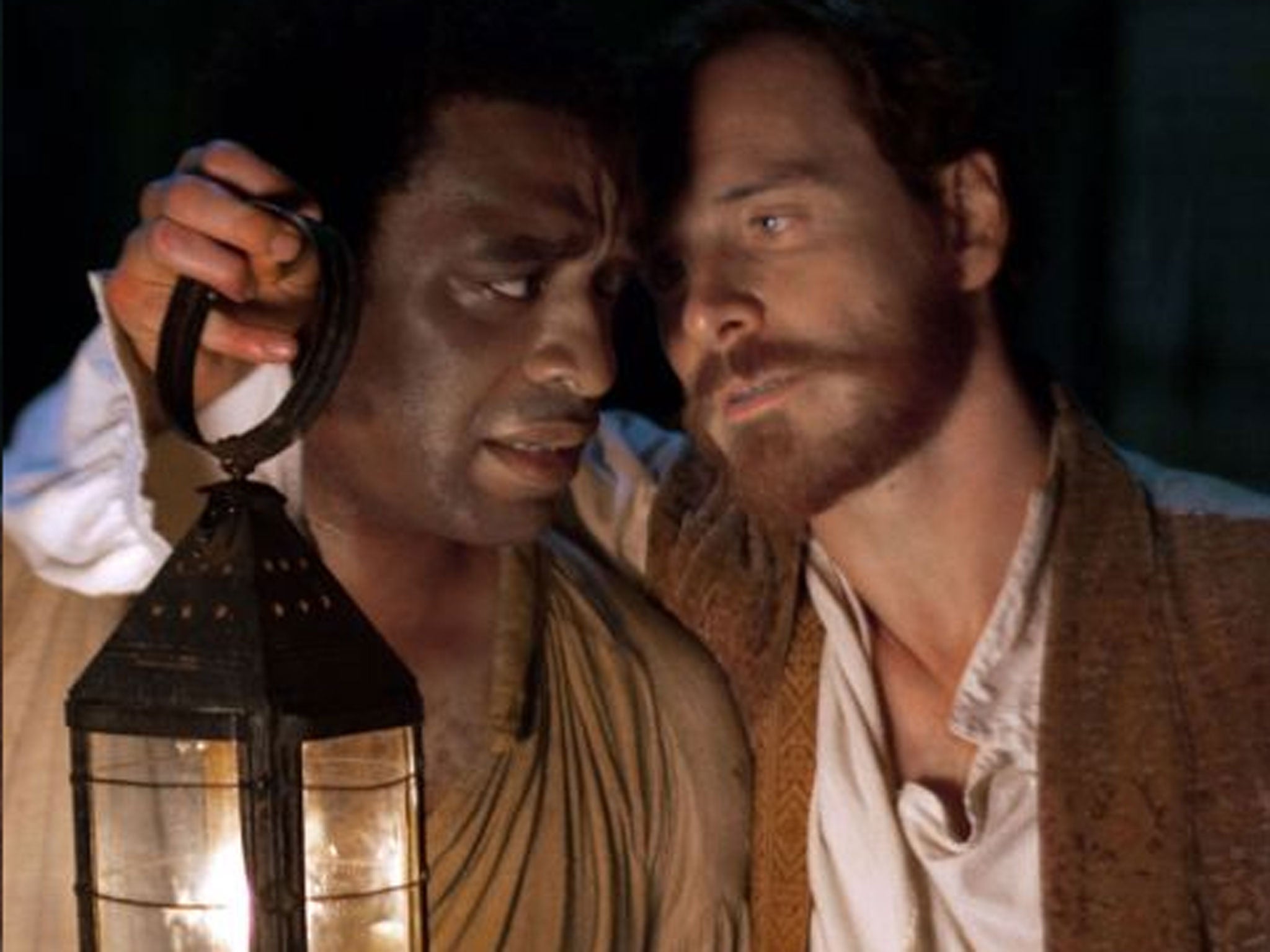12 Years a Slave at the Toronto Film Festival: Steve McQueen's brutal scenes divide festival audience
Some walk out, others stay to cheer director Steve McQueen

A harrowing depiction of slaves being beaten, tortured and killed that forced some audience members to walk out of the Toronto Film Festival has been defended by a film's Oscar-tipped British star.
Chiwetel Ejiofor said the violent scenes in Steve McQueen's adaptation of Solomon Northup's memoir, 12 Years a Slave, were necessary in the bondage tale.
"Solomon's story is full of [violence] but also full of beauty and hope and human respect and dignity," he said. "With Steve there to guide it, we weren't afraid to explore all that, and go to those dark places."
The "dark places" included brutal scenes that saw some members of the audience leave yesterday's screening. There are several realistic scenes of brutal violence, with McQueen paying particular attention to the scarring of the victims.
Ejiofor, who plays Northup – a free musician living in Saratoga, New York, who is kidnapped by supposed circus owners in Washington DC and sold into slavery in the South – is seen in one early scene being beaten 15 times with a bat and then whipped 14 times by his kidnappers.
McQueen does not shy away from showing slaves being hanged and killed, and in one particularly harrowing 10-minute scene, a plantation owner Epps, played by Michael Fassbender, strings a slave to a post before ordering her beating. She is shown being whipped 41 times.
McQueen's previous film Shame depicted a sex addict, but this time it is likely to be the violence that will attract attention.
McQueen is particularly effective in showing the impossibility of escape for the slaves in the film based on Northup's 1853 memoir. Northup is given the slave name Platt and told by fellow slaves not to reveal that he can read or write, or say that he can prove he is a free man, as this would result in certain death. The potential for brutal violence is overwhelming. Many beatings occur off-camera, but when McQueen does show brutality on-screen little is left to the imagination. These scenes may test the British censors, although given the story that is being told, it is likely no cuts will be ordered.
There was a deserved 10-minute standing ovation for the film at the festival with many in the audience in tears. Critics are already comparing 12 Years a Slave to Schindler's List. And the film is being touted as the frontrunner for next year's Oscars with a Best Picture nomination seemingly guaranteed.

Watch Apple TV+ free for 7 day
New subscribers only. £8.99/mo. after free trial. Plan auto-renews until cancelled.
ADVERTISEMENT. If you sign up to this service we will earn commission. This revenue helps to fund journalism across The Independent.

Watch Apple TV+ free for 7 day
New subscribers only. £8.99/mo. after free trial. Plan auto-renews until cancelled.
ADVERTISEMENT. If you sign up to this service we will earn commission. This revenue helps to fund journalism across The Independent.
Three Brits are likely to be in the running for individual prizes. Steve McQueen for best director, Ejiofor for best actor, and Fassbender for best supporting actor. In the film, Ejiofor delivers a performance comparable to his multi-award winning turn as Othello at the Donmar theatre in 2007.
McQueen and his impressive cast – which also includes Alfre Woodard, Brad Pitt and the Kenyan actress Lupita Nyong'o – took the stage after the credits rolled at its official world premiere to answer questions.
McQueen told the audience he wanted to adapt Northup's story as he felt the harsh realities of slavery had too rarely been depicted on the big screen. "I wanted to see that story on film," said the London-born filmmaker. "It's that simple."
Pitt, who also served as producer, said: "Steve was the first to ask why there have not been more films on the US history of slavery. It's a question it took a Brit to ask."
Join our commenting forum
Join thought-provoking conversations, follow other Independent readers and see their replies
Comments